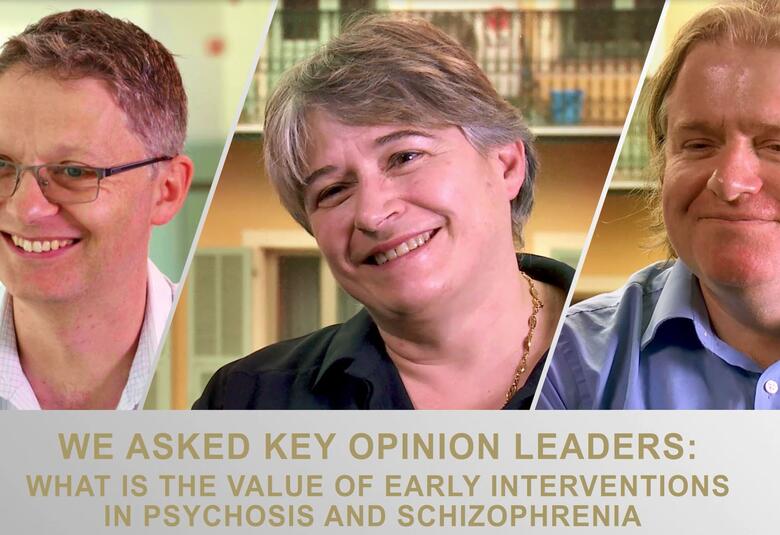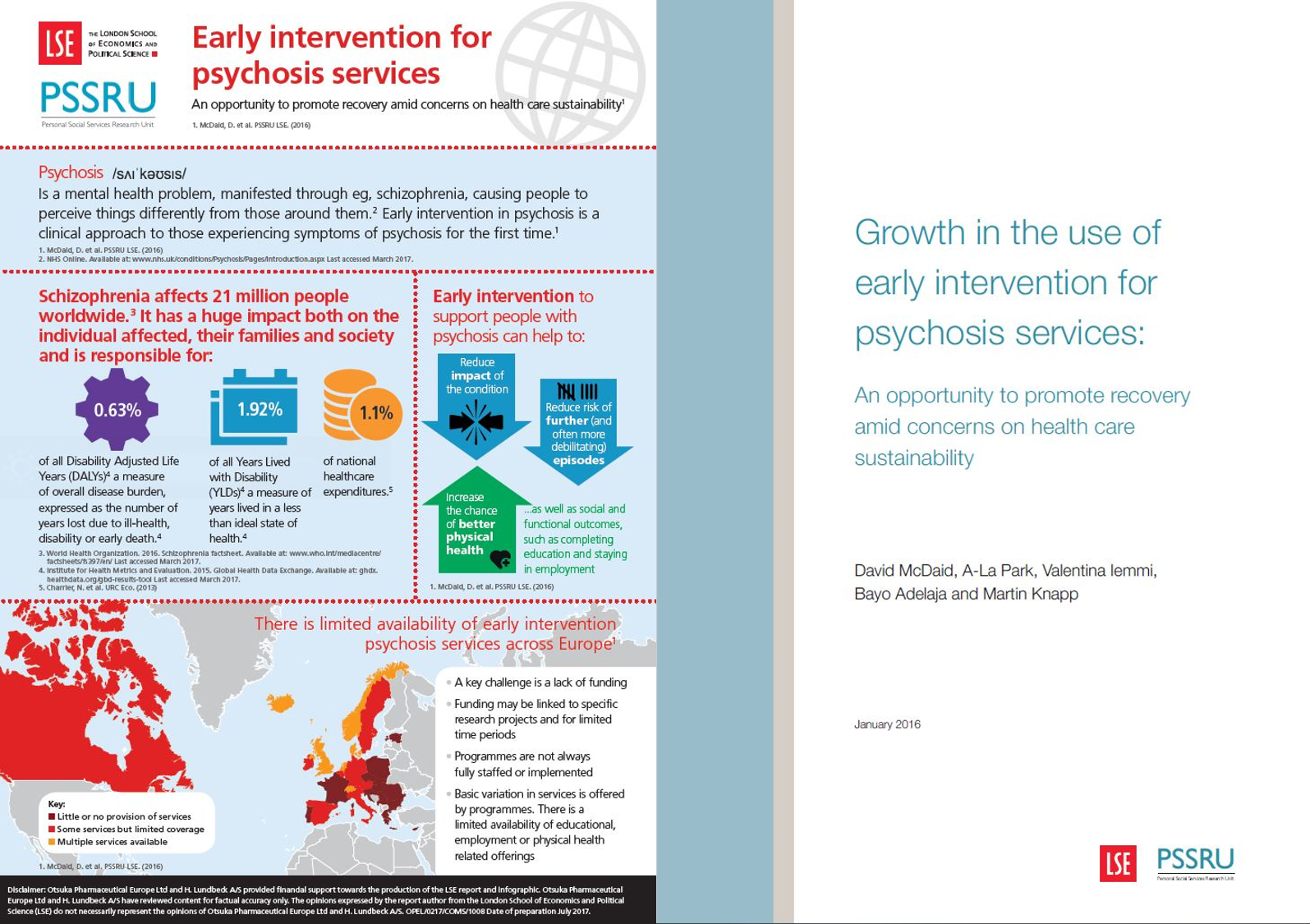Schizophrenia is a heterogenous, progressive and recurrent disease with multiple dimensions which can impact the overall course of the disease as well as response to treatment.
Schizophrenia is characterized by multiple relapses, and following a relapse patients may not return to their previous level of function which can affect both the short and long-term prognosis for patients living with the disease.
The specific benefits of early intervention are well-documented, both for the patient and broader society. These include:
- Higher recovery rate at 1/3 of the cost of standard public mental health services1-2
- Financial savings - of approximately €25,000 over a five-year period3
- Improved treatment success rate - including hospital bed days4 and decreased relapse rates5
- Improvement in social functioning6-7 and in the quality of life of people living with schizophrenia and their carers5
- Improvement in employment for people with schizophrenia - in some cases employment participation has been continuous for more than ten years8
- Decrease of premature mortality rates9





